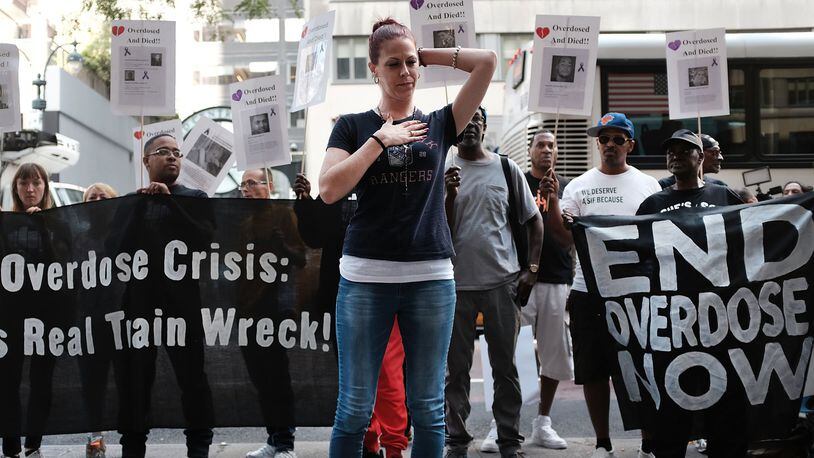Fuller did not have cancer. According to a congressional report made public this week by Sen. Claire McCaskill, a Democrat from Missouri, Fuller never should have been prescribed the drug, as she didn’t qualify for it medically. The devious and possibly illegal way that she did receive it is the subject of McCaskill’s report.
“Basically, you know, they set her up to die,” the deceased woman’s mother, Deborah Fuller, told The Philadelphia Daily News.
A drug sales representative with the Arizona-based Insys pretended to be an employee of Fuller’s doctor’s office. She placed a call and stretched the truth, implying that Fuller needed Subsys. It’s all on tape and was played at the release of the report this week. The rep’s motivation can be inferred from the fact that Fuller’s medicine cost as much as $24,000 a month over a 14-month treatment period.
The title of the report is a mouthful: “Fueling an Epidemic: Insys Therapeutics and the Systemic Manipulation of Prior Authorization.” The key word is “systemic.”
Understanding the opiate crisis requires unraveling a system in which many players participate and benefit: drug company shareholders, sales representatives, doctors and other intermediaries who OK prescriptions, among others.
The FDA approved Subsys in 2012, and soon it was generating sensational profits. According to the report, revenues and profits soared, and the “value of company stock increased 296 percent between 2013 and 2016.” It’s highly likely that a culture of chasing sales goals helped form the dynamics behind what is alleged to have happened to Fuller.
According to McCaskill’s report, “Neither the Insys sales representative nor (Fuller’s doctor) informed Sarah or her father that Subsys was fentanyl and that it was only approved and indicated for patients that were experiencing breakthrough cancer pain from malignant cancer.” This would have been important to know, as Fuller’s parents had disclosed to her doctor that she had previously overcome addiction to narcotic pain medication.
McCaskill is approaching the opioid epidemic with the skills of a county prosecutor, her prior calling. Her office is investigating five manufacturers and distributors of these highly addictive drugs, delving into the practices of insurers to approve such drugs.
Too often, people who overdose are seen as weak and somehow deserving of their fate for having let themselves get addicted. This congressional report pokes a very big hole in that fallacy.
Insys insists that this is all past tense, claiming that long-gone executives were responsible. The firm asserts that it has cleaned its own house and established compliance programs while fully cooperating with federal agents.
Sorry, there are no morality medals for acting after being caught.
This is just one company and the story of one victim. There are many more — each with a heartbreaking tale, each a part of this unfolding saga of addiction sweeping America.
About the Author
